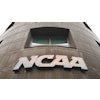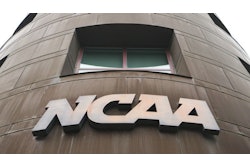 Senator Maria Cantwell
Senator Maria Cantwell
The Student Athlete Fairness and Enforcement (SAFE) Act, led by Sens. Maria Cantwell of Washington, Cory Booker of New Jersey and Richard Blumenthal of Connecticut, would establish a national standard for name, image and likeness rights that athletes can use to earn money from endorsements. The bill would also allow colleges to pool their media rights to negotiate higher-value broadcast deals, similar to professional sports leagues.
"This legislation is a path through the new world of NIL," said Cantwell. "This bill will protect athlete rights, preserve women's and Olympic sports, and help smaller schools compete."
The measure comes as college athletics faces significant upheaval following a 2021 Supreme Court decision and subsequent state laws that allowed athletes to profit from their personal brands. Schools now operate under a patchwork of state regulations, and a recent legal settlement permits universities to directly pay athletes up to 22 percent of athletics revenue.
The financial pressure on athletic departments has intensified. In 2023, the average Football Bowl Subdivision program earned $79 million in revenues but spent $98 million, according to the bill's sponsors.
Under the legislation, Division I athletes would receive 10-year scholarship guarantees and five years of post-eligibility medical coverage for sports-related injuries. The bill would establish safety standards for heat exertion, brain injuries and other health concerns, enforced by independent officers.
The measure would amend the Sports Broadcasting Act of 1961 to allow colleges to collectively negotiate media rights without violating antitrust laws. A new committee within the NCAA would oversee distribution of the increased revenue, with mandates to maintain scholarship and roster levels for women's and Olympic sports at 2023-24 levels.
The bill also targets agents and collectives — organizations that facilitate endorsement deals for athletes. Agents would be required to register with states, face a 5 percent cap on fees and be prohibited from making fraudulent statements. Collectives would have to demonstrate that payments to athletes serve legitimate business purposes tied to actual goods and services.
Additional provisions would require football and basketball games to be available for free in schools' local media markets and allow athletes to transfer twice without sitting out a year.
The Federal Trade Commission and state attorneys general would gain enforcement authority under the bill, with athletes also granted a private right of action to sue agents who violate their rights.
The legislation contrasts with the SCORE Act currently under consideration in the House, which Cantwell has criticized as favoring wealthy conferences like the SEC and Big Ten.















